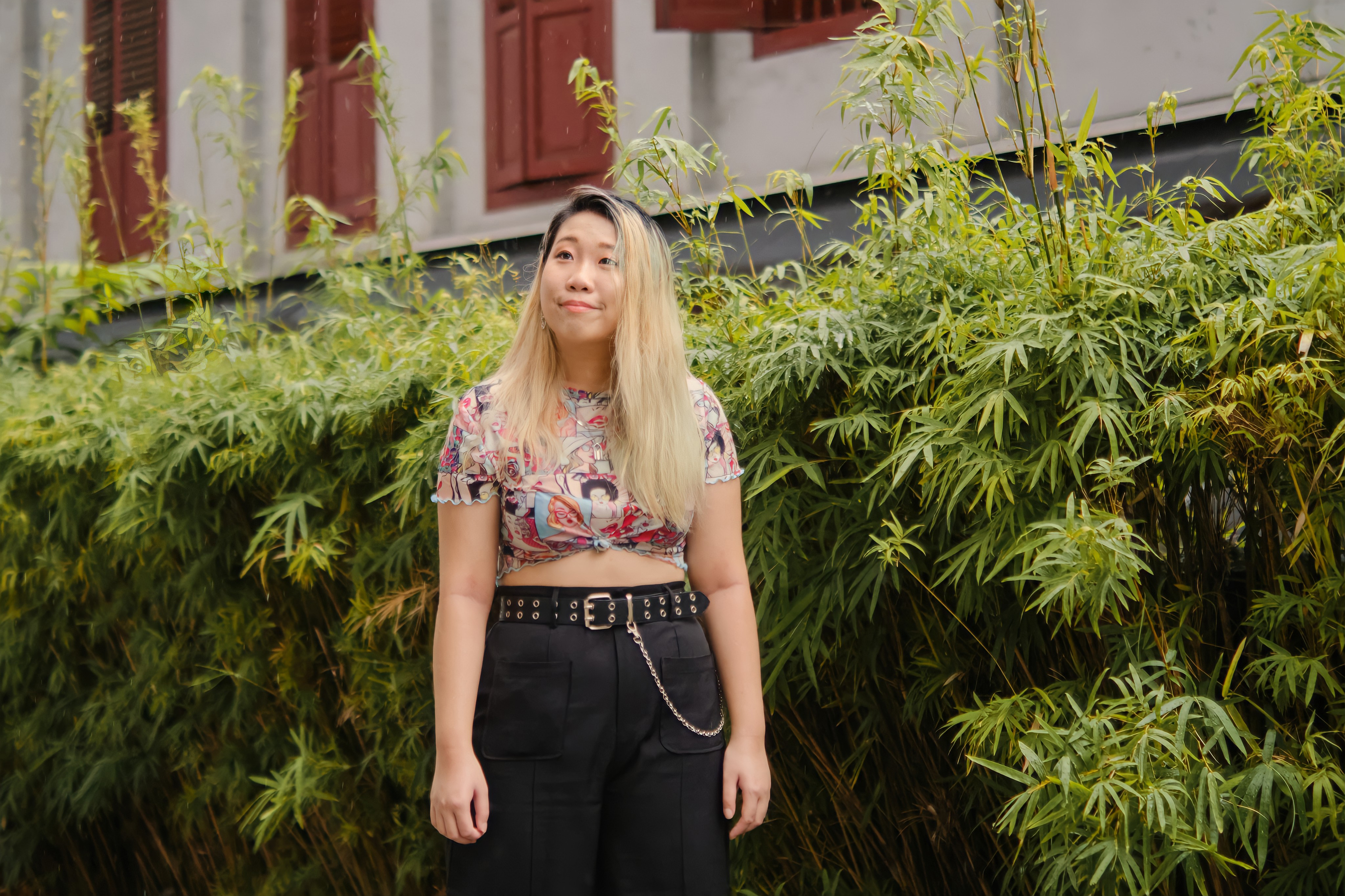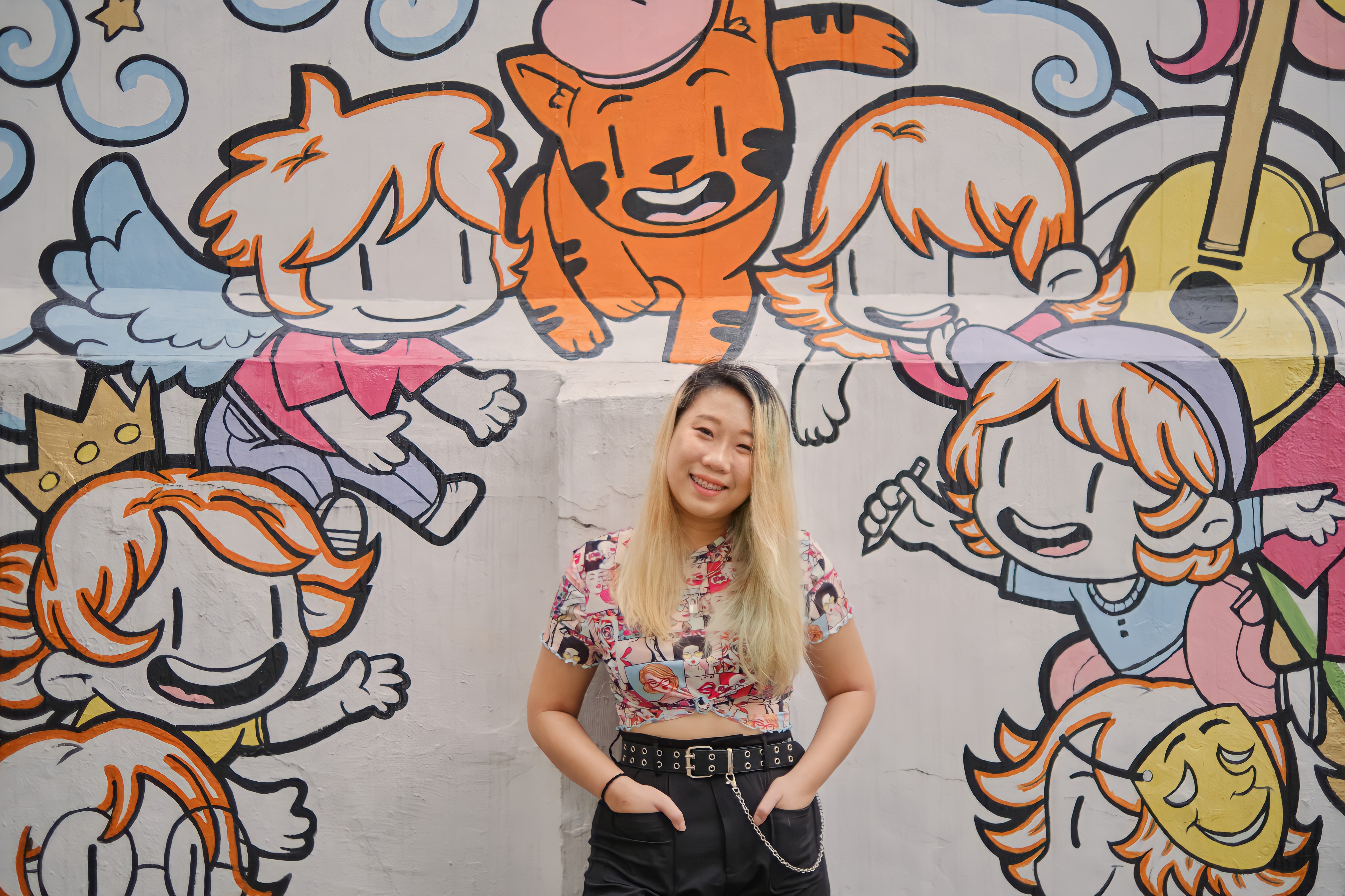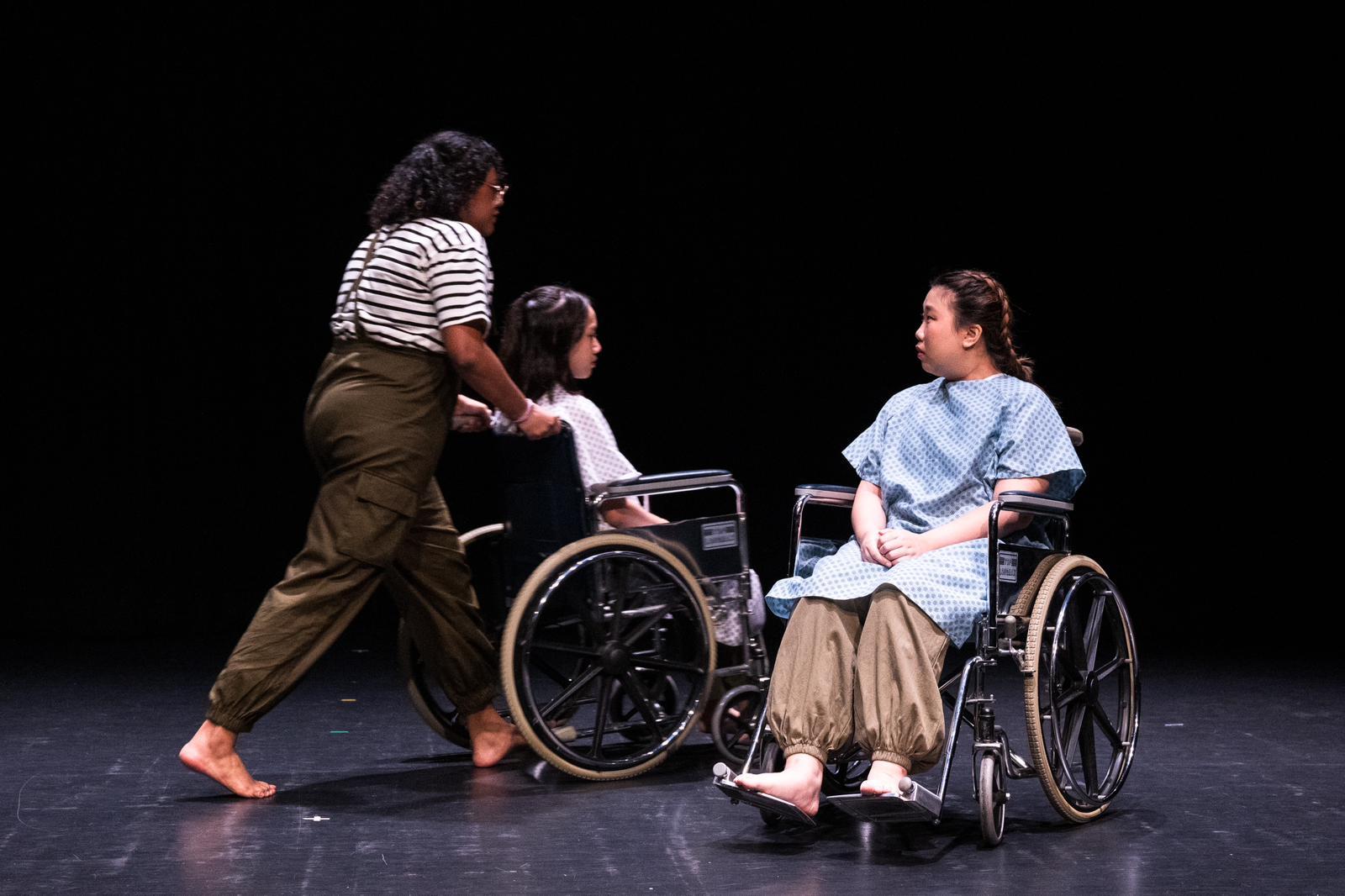Christine Koh is in her final year for a Diploma in Drama at the Nanyang Academy of Fine Arts (NAFA). She is pretty much like many other youngsters – she enjoys hanging out with friends and ice-cream hopping, with Mary Lee as her favourite brand as it has local flavours that she likes. Life was not always so straightforward though. Her mum had expressed frustration that she was not taking the same route as her sister to pursue a business studies diploma at the polytechnic.
Christine could not speak, write or read till she was 10. She had no friends and was labelled “stupid”, “lazy” and “not putting in any effort”. When she was diagnosed with dyslexia at nine, it was her tutor who helped her to learn how to speak, pronounce, read and write. At around 11 years old, she read her first book, “True Singapore Ghost Stories”, a huge milestone that she managed to cross.

Drama is what draws the best out of Christine. She feels that she is able to escape reality by playing the character she assumes. She also enjoys being able to express herself through movement. She discovered this interest in secondary school but spent the first two years as a backstage hand as she could not articulate well enough to play any character. It was fortuitous that one of her teachers spotted her potential and assigned her a role. This led on to other roles including one in a play for the Singapore Youth Festival.
Taking up Drama at NAFA was therefore a natural move. However, due to a lack of self-confidence, she continued to face struggles, stuttering as she spoke her lines. Even learning the lines was an uphill task as the words on a script would appear to be moving and dancing around, therefore, intensifying her struggle to memorise the lines. Determined to manage these challenges, she used various coping mechanisms from getting a reading app with a robot to read the script to her, to treating the script like she was having a conversation with her friends. She appreciated the support of lecturers and friends who corrected her pronunciation and gave her encouragement.

Christine wants to help young people with similar struggles as herself to succeed through drama. When they are caught in situations where they are unable to react, she will encourage them to recall how they had acted out similar situations in the past so that they will have the confidence to respond. She will also adopt different techniques to help them remember their scripts by reading the scripts to and with them, instead of simply “throwing the script at them”, and incorporating music, rhythm and movement to help them remember their lines. Her ultimate goal is to involve herself with interactive theatre to raise social awareness on the struggles that persons with dyslexia face.
What are Christine’s parting words on her journey with dyslexia? She suggested not saying to persons with dyslexia: “You're doing very well for someone with dyslexia" or "You actually speak very well”. While the intent is to be encouraging, this could come out as being patronising. Instead, do say "I like this confidence" or “Keep up the good work” as this would bring out the smiles on their faces.
May 2024
DISCOVER HER ACHIEVEMENTS HER CONDITION
Achievements
Christine Koh played various roles in her 2024 NAFA Graduation show titled "Bucket" that showed how people navigated through difficult situations and emotions in their daily lives when loved ones fall ill, face terminal sickness and pass on. Her roles included as a fundraiser for kids with cancer and a terminally ill person who has passed onto her next life and is uncertain how to navigate an unknown world.
DYSLEXIA
Dyslexia is a type of specific learning difficulty identifiable as a developmental difficulty of language learning and cognition. It is not a problem with intelligence although the difficulty can mask a person's intelligence. It is not a problem with vision although it is sometimes described as "word blindness" and dyslexics also say that they see words and letters running around. Dyslexics struggle with reading and comprehension as well as spelling and writing. Challenges can be life long but there are diagnostic tools for early detection and intervention strategies that can compensate for the difficulty.
Symptoms
The following are some common symptoms associated with dyslexia but different people are affected to varying degrees and people with these symptoms may be facing other difficulties too.
- May talk later than children of similar age, slow to recall words or add new words to vocabulary
- May have difficulty telling or re-telling a story in the correct sequence
- May be slow to learn the connection between letters and sounds
- May have difficulty decoding words in isolation (reading single words in isolation)
- Makes consistent reading and spelling errors including:
- - Letter reversals – d for b, e.g., dog for bog
- - Word reversals – tip for pit
- - Inversions – m and w, u and n
- - Transpositions – felt and left
- - Substitutions – house and home
- May transpose number sequences and confuse arithmetic signs (+ - x / =)
- May face difficulty telling time
- May develop fine motor skills at slower pace than other children
- May be unable to follow multi-step directions or routines
- May have difficulty with personal organization
Dyslexia is a disorder present at birth. It cannot be prevented or cured and without proper diagnosis and instruction, it can lead to frustration, poor performance in school and low self-esteem.
TreatmentEarly diagnosis is important to identify areas to work on so that children with dyslexia can learn strategies and skills to cope and perform better in school.
Children with dyslexia can learn in mainstream schools but in different ways than children without the condition. An individualized education plan can be structured to help dyslexics with their specific problems.
A variety of visual, aural and tactile tools can be used that are fun and effective in providing learning strategies for dyslexics.
Assistive educational technology has provided tools to boost learning by young and adult dyslexics as well as track their progress.
Joining a parent support group can help parents stay in contact with parents whose children face similar learning disabilities. Such support groups can provide useful information and emotional support.
Useful links- What is Dyslexia - Dyslexia Association of Singapore https://www.das.org.sg
- Dyslexia in Children - Understood.org https://www.understood.org/en/learning-attention-issues/child-learning-disabilities/dyslexia/understanding-dyslexia
- http://www.readingrockets.org/article/common-signs-dyslexia-preschool-grade-4
- https://www.straitstimes.com/singapore/students-with-dyslexia-turn-to-technology-for-better-learning-experience
- The Complete Guide to Finding Help for Dyslexia in Singapore (2019) https://swordsandstationery.com/stationery/help-for-dyslexia-singapore
- https://www.straitstimes.com/singapore/dyslexic-but-they-thrived-in-business



